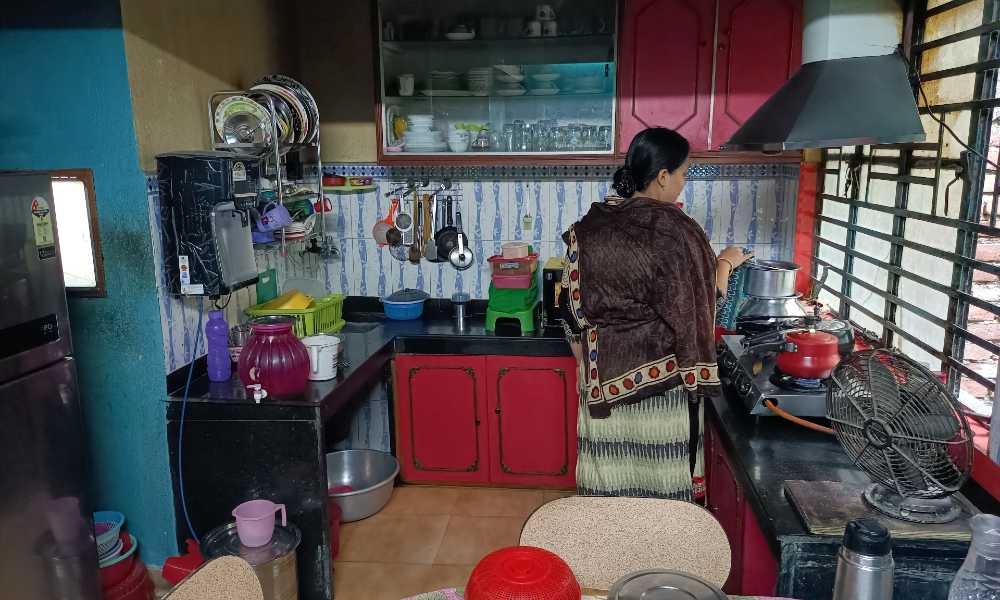The current set of FSSAI regulations and licensing measures do not cover the concept of Cloud Kitchens.
Cloud kitchens in Bengaluru are evading mandatory Food Safety and Standards Authority of India (FSSAI) registration laws and mandates by selling food through Instagram and WhatsApp. It is becoming a common trend, at a time when the gross market value of cloud kitchens in India is projected to grow as much as $2.3 billion by 2025.
Chris, who runs Tribal Kitchen that specializes in making Khasi and other north-eastern food, started his food servicing business five months ago. But he has not applied for an FSSAI registration and conducts his service through WhatsApp and Instagram.
“We have pages on Instagram and WhatsApp where users can order food. We have our food items catalogued in our menus on both these social media platforms and people can order food one or two hours prior to requirement. We are based in Koramangala, but we deliver the food all over Bengaluru,” he said.
FSSAI is a statutory board under the Ministry of Health and Welfare. It was established under the Food Safety and Standards Act, 2006. FSSAI was created to enforce ‘science-based’ standards for the articles of food and to regulate the manufacture, distribution and storage in order to ensure the availability of safe and wholesome food for human consumption. Cloud kitchens, which are commercial kitchens where food is prepared only for delivery or takeout, come under the purview of FSSAI, which issue licenses for the same.
Chris says he has not opted to list his food business to Swiggy and Zomato yet. He also does not have an FSSAI registration. “We do not have an FSSAI registration, but we are planning to get one soon. It will help us list our products on Swiggy and Zomato as well. However, in our home kitchen, we ensure complete hygiene and cleanliness when making our dishes,” he said.
Little Kitchen, another cloud kitchen, also operates on Instagram and has its items catalogued in the application. They have been operating for over a year, but have yet to opt for an FSSAI registration.
“We accept our orders through the social media applications and have not relied on Swiggy or Zomato. We have thought of applying for an FSSAI license, but we have been unable to do so just yet,” says Harish, the owner of Little Kitchen.
FSSAI mandates that all Food Business Operators (FOB), including cloud kitchens, must file registration that approves their safety standards. Under Chapter 5 of this scheme, any business with an annual turnover of less than Rs. 12 lakhs must apply for an FSSAI registration.This is done in order to ensure that food is being made and delivered in a safe environment.
While companies such as Swiggy, and Zomato require FSSAI licenses for onboarding, small businesses are evading the regulations by using platforms such as WhatsApp and Instagram., platforms that do not require such licenses and offer users the luxury to catalogue their food items.
‘Form A’ under Food Safety and Standards Act, 2006, is the application form that requires to be filled when applying for an FSSAI license. It demands details such as the location of the kitchen, description of food items being sold and overall facilities available around the kitchen.
Sufyan, who is the owner of Sufi’s Kitchen, applied for an FSSAI license a few months ago. He said the entire process was done smoothly online and did not require much physical verification.
“The FSSAI licensing process was smooth. I only had to fill out a form and then wait for approval. A person from the agency came, but he only checked my property for five to ten minutes, and then okayed approved my approval,” he said.
Shirina Sheikh, a microbiologist and a food safety expert, explains the boom of Cloud kitchens but says it is imperative for the government to come up with measures to better regulate the safety of food distribution.
“Cloud kitchen concept has boomed in the aftermath of the pandemic. Due to the relatively lower cost of operation, people have preferred cooking meals in their private kitchens and delivering them to cities. However, as the industry of cloud kitchen continues to grow, FSSAI must come up with mandates that can better regulate and ensure the food safety and its distribution by these kitchens,” she said.
Responding to a report in September, FSSAI stated that any non-compliance with food safety from any individual business can be reported to the authority through the ‘Food Safety Connect’ mobile app, which is available for android users only.




